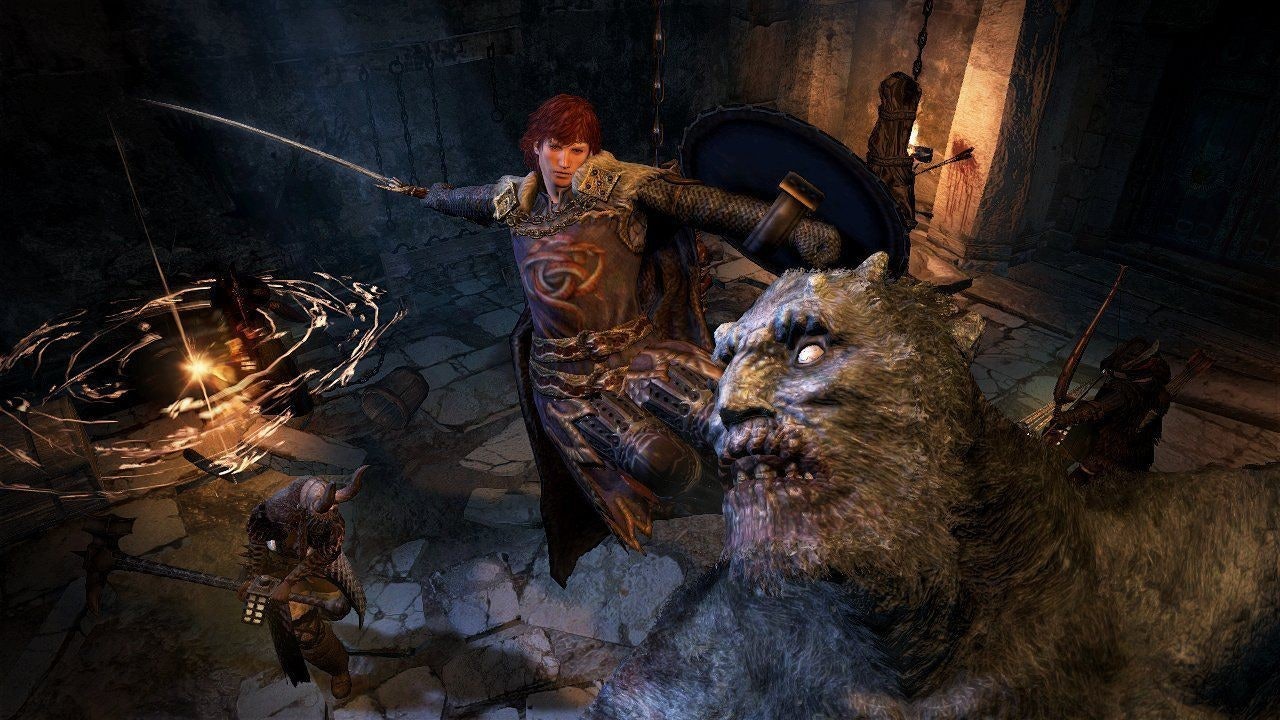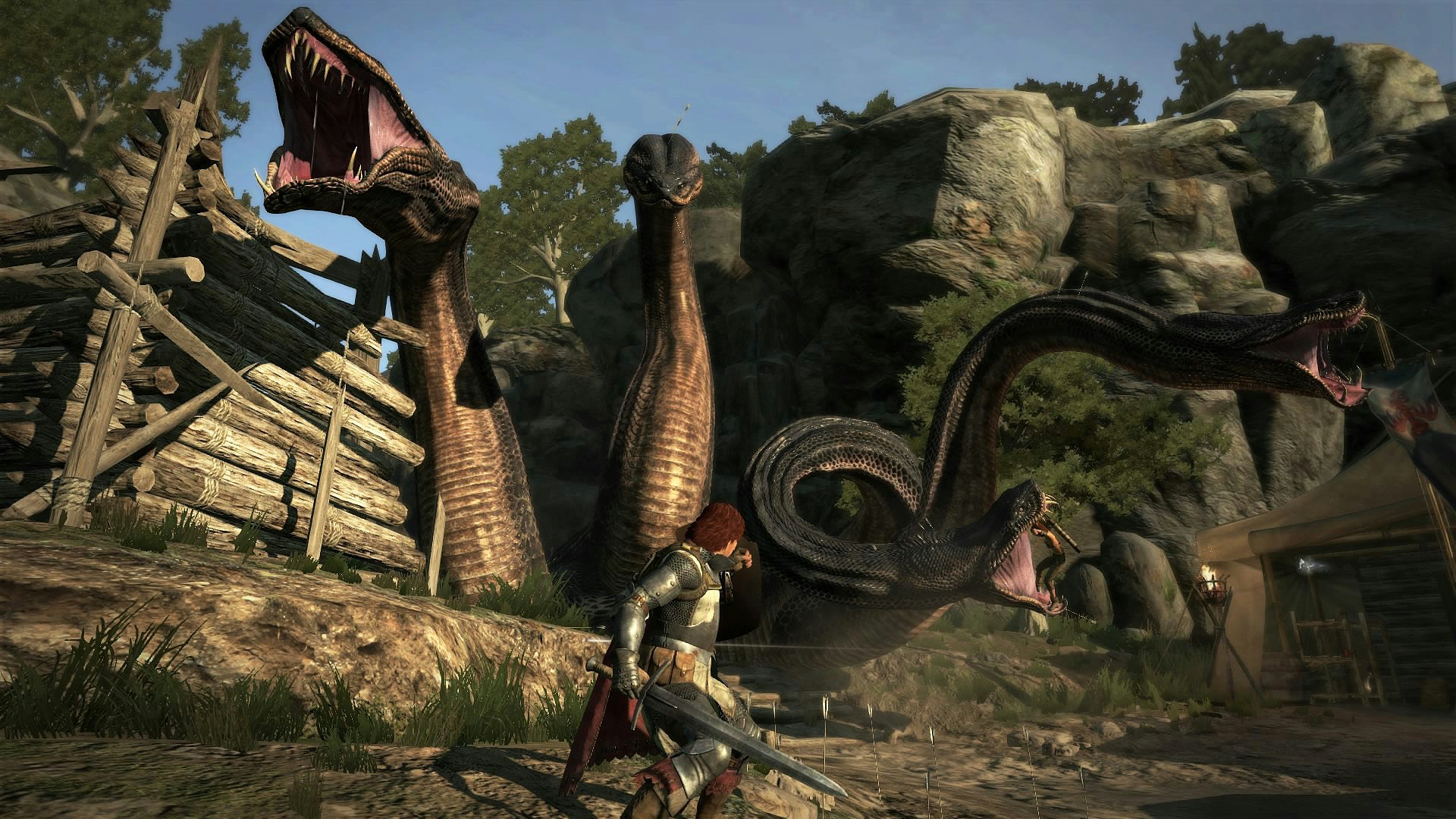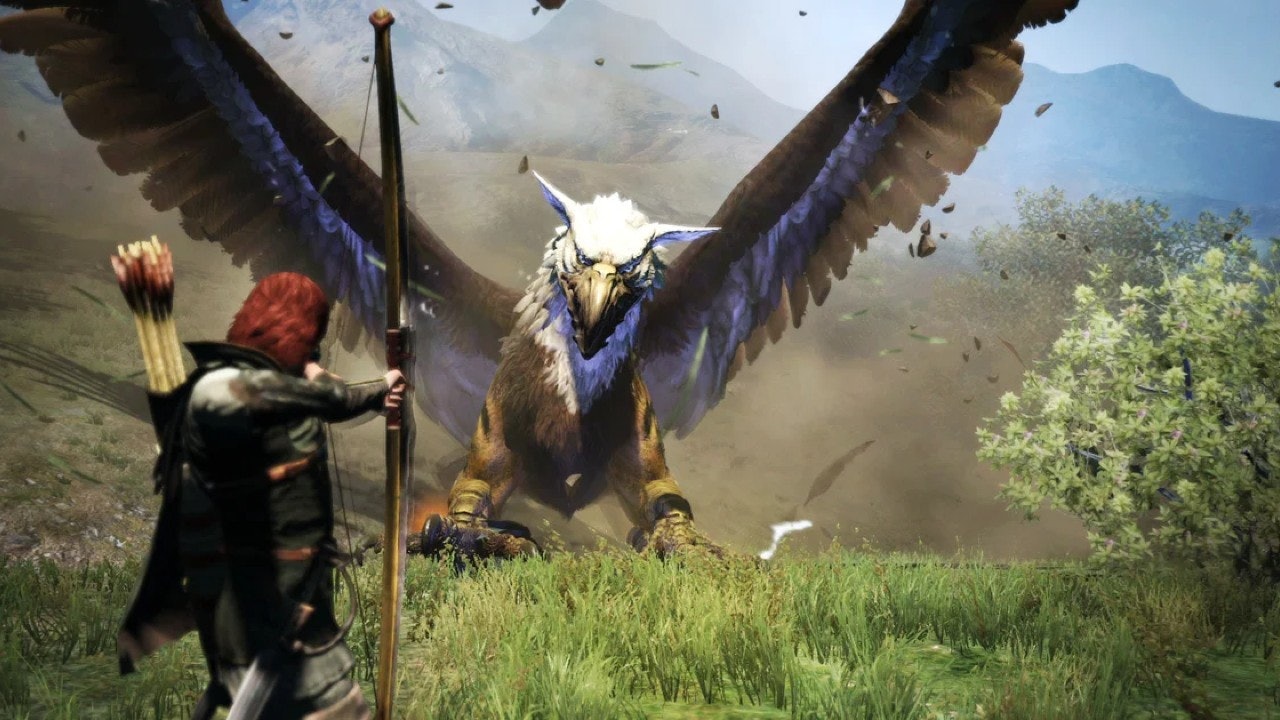
Capcom is best known as the creator behind prolific franchises like Resident Evil and Monster Hunter, but amid those mega hits, the publisher often releases smaller (and much weirder) projects. The epitome of that is Dragon’s Dogma, a fascinatingly experimental game with ambition in droves, taking elements from Dark Souls, Shadow of the Colussus, and Lord of the Rings, and throwing it all into a big bubbling cauldron. It’s an experience that can often be baffling and bizarre, but equally inspired and engrossing. With a sequel on the horizon in 2024, PlayStation Plus Extra users can play Dragon’s Dogma: Dark Arisen for free, and it’s guaranteed to be one of the most unique gaming experiences you can have.

Dragon’s Dogma takes place in a high-fantasy setting called the Grand Duchy of Gransys, opening with you controlling a knight named Savan on a quest to slay a dragon. It’s a typical setup for a very atypical story, as your initial character is slayed by the dragon. This prompts you to create a new character whose village is then attacked by the same dragon, resulting in the dragon literally stealing your heart. From there, the story of Dragon’s Dogma spirals into absolute absurdity, weaving multiple universes, vengeful gods, and a heaping of other twists. It’s convoluted, to say the least, but if you’re into lore-dense worlds, there’s a lot to love.
The real star of the show, however, is Dragon’s Dogma’s ambitious exploration and combat. The best word to describe combat in Dragon’s Dogma is “weighty.” It’s similar to Monster Hunter, in a way. All of your actions feel fluid and deliberate, and learning your character’s moveset and how to best execute attacks is essential. You have a selection of regular attacks and skills, but a ton of depth gets added into the combat system with three essential ideas: Climbing, Vocations, and Pawns.
Dragon’s Dogma has a specific “grab” button, that lets you latch on to objects and enemies, clambering up them like a rock climber. It’s an essential part of combat, as it allows you to position your character for key attacks. For example, you might climb up a cyclops’ back to stab its eye or grab onto a Griffin before it launches into the air and becomes unreachable. It’s as if Monster Hunter was fused with Shadow of the Colossus, and it makes battles feel dynamic, especially when coupled with dynamic enemy design. Enemy AI will often react to specific situations, like Goblins running around in a panic if they touch fire, or Ogres increasing their attack speed if more women are present in the party.

The variety of combat goes through the roof when you factor in the Vocation system. There’s a host of different Vocations you can choose from, including Fighter, Mystic Knight, Assassin, Sorcer, and more. Each has a wildly different moveset and playstyle, giving you a wealth of options to customize. If you want a hit-and-run type character with quick climbing you could choose Assassin, the Fighter for a more hack-and-slash experience, or Sorcer for AoE spellcasting that can interact with the environment.
Vocations are made even more dynamic when you factor in the Pawn system, which lets you recruit three different AI party members for your adventure. The companion AI in Dragon’s Dogma is surprisingly complex, with Pawns oftentimes feeling like other players in how efficiently they attack and react to threats. While you can create your own Pawns, you can also recruit Pawns made by other players, mixing and matching different characters and Vocations until you find your ideal mix.
It’s easy to see how ambitious Capcom was with Dragon’s Dogma, but it can also be rough around the edges. While the game’s combat is filled with incredible moments, it can also feel janky at times. The same goes for both the massive open world and story, which have brilliant moments mixed with some baffling design decisions. The story is intensely focused on the overall picture and lore, which means there isn’t a lot of character development that drives the narrative. Meanwhile, the open world requires an inordinate amount of on-foot travel and lacks any kind of meaningful fast travel system. Despite a wealth of interesting locations, bosses, and discoveries, this can oftentimes lead to a healthy dose of tedium.

What’s fascinating about Dragon’s Dogma is that a huge percentage of the original plan was cut during development, and it’s easy to see where large chunks of the game were removed. Despite this, Dragon’s Dogma remains a singularly unique experience with a combat system that feels revolutionary, even by today’s standards.
It’s an unforgiving game that drops you right into its world with little explanation, but Dragon’s Dogma is the kind of experience that rewards the effort you put in. The more you dig into its system and world, the more engrossing they become, culminating in an incredible final act that features one of the finest boss fights Capcom has ever designed.
All of this is exactly what makes Dragon’s Dogma 2 so exciting, it’s Capcom’s chance to deliver on the complete vision of the original game. Having the context of the first game, and its unyielding ambition, is absolutely something you’ll want for its massive upcoming sequel.







